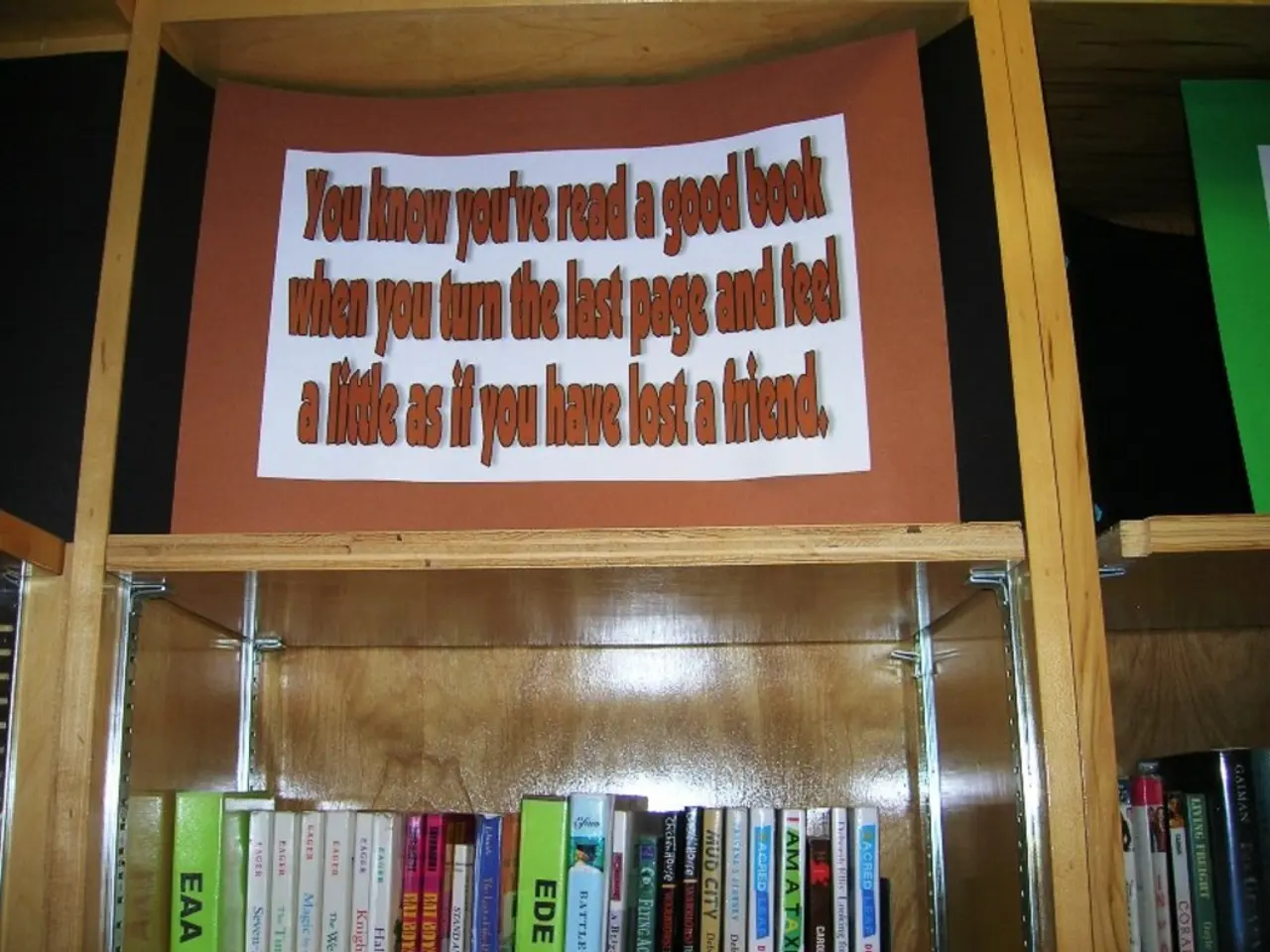Boosting Your English Vocabulary with Virtual Flashcards Technique
In the digital age, learning English vocabulary has never been more accessible and engaging, thanks to virtual flashcard applications. These digital tools, such as Anki, Quizlet, Memrise, Brainscape, and Lingvist, are revolutionising the way language learners around the world study and retain information.
One of the key features of these apps is the integration with spaced repetition systems (SRS), a method of learning that optimises retention by presenting information at increasing intervals over time. This constant reinforcement of knowledge ensures that learners can effectively memorise and retain words for the long term.
Applications like Memrise focus on active recall through a mix of language games and quizzes alongside flashcards. This approach encourages users to actively retrieve words and their meanings from memory, a technique known as active recall, which is one of the most effective learning strategies.
Duolingo provides comprehensive reports that highlight areas requiring improvement, enabling learners to adjust their learning strategies accordingly. Meanwhile, apps like Lingvist offer personalised flashcard sets tailored to learners' requirements and incorporate challenges and rewards that incentivise goal achievement.
Most applications, such as Brainscape, employ algorithms that determine when a flashcard should be shown again, based on how well you've remembered it previously. This adaptive learning approach ensures that learners are consistently challenged and that their study time is maximised.
Virtual flashcards can include multimedia elements like images, audio pronunciation, and videos, making learning a multi-sensory experience. They can also be personalised and gamified, transforming the learning process into a captivating experience that keeps learners motivated and engaged.
Community-created or shared vocabulary sets provide a vast array of thematic or situational vocabularies suited to personal or professional needs. Organising flashcards by themes such as food, travel, or business can streamline the learning process, making it easier for learners to focus on specific areas.
By leveraging the various platforms and features discussed, learners can create an effective learning strategy that suits their personal goals. To effectively use virtual flashcard apps for English vocabulary building, follow these expert strategies:
1. Use Spaced Repetition: Choose apps with spaced repetition algorithms (like Anki) that optimise the timing of reviews to boost memory retention. Focus more on words you find difficult so they appear more frequently in your study sessions.
2. Stay Consistent with Daily Practice: Make reviewing flashcards a daily habit with short, focused sessions. Regular exposure is more effective than infrequent, long sessions because it aligns with how the brain best retains information.
3. Engage Actively with Each Word: Don’t just flip through cards passively. Take time to use new words in sentences, recall contexts where you saw them, and think of synonyms or antonyms. This deeper processing strengthens your understanding and memory.
4. Diversify Your Learning Modes: Combine activities: besides flashcard review, do writing exercises, speak using new vocabulary, or play vocabulary games offered within or alongside flashcard apps. This variety keeps learning interesting and helps apply words practically.
5. Leverage Ready-Made and Custom Flashcards: Use available decks tailored to your needs (e.g., thematic lists, exam prep) or create personalised flashcards from new words you encounter, such as those from books or tests. Including images, sounds, or example sentences enhances recall.
6. Test Yourself Regularly: Utilise quizzes or built-in self-assessments to check how well you remember words. Periodic testing reinforces learning and helps identify words needing more practice.
7. Use Supplementary Resources: Combine flashcards with digital libraries offering dictionaries, thesauruses, and vocabulary exercises for comprehensive learning. Platforms like Quizlet and Merriam-Webster provide interactive flashcards and definitions to deepen your knowledge.
ESL (English as a Second Language) learners can bridge the gap between theoretical knowledge and practical use by regularly practising words and phrases encountered in their flashcards during daily interactions. By effectively using virtual flashcard apps, learners can efficiently build and retain their English vocabulary, making a remarkable difference in their path to mastering the language.
- To effectively remember words for a long time, consider using applications like Anki that incorporate spaced repetition systems, synonyms, and antonyms in their flashcards, ensuring a more efficient learning process.
- For those interested in learning English vocabulary, investing in technology such as smartphones and gadgets, along with educational and self-development applications like Quizlet and Memrise, can revolutionize your study experience.
- Incorporating further resources in your language learning journey, such as dictionaries, thesauruses, and vocabulary exercises found on platforms like Quizlet and Merriam-Webster, can help broaden your vocabulary and deepen your understanding of the English language.




